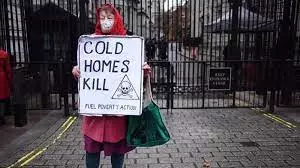
Energy crisis in Europe may prevail after winter: experts
text_fieldsRome: Experts think that the energy crisis plaguing the European continent is likely to last beyond the winter. The severe economic impacts of the Russia-Ukraine war are likely to exist until the conflict is over.
Director of Irex Monitor, a think tank in Italy specialising in the energy sector Alessandro Marangoni said energy costs will not begin to stabilise until there is an end to the Ukraine war. "Are economic growth provisions going to be weaker than we thought into 2024 or 2025 or even 2026? That depends entirely on how long the conflict stretches out," he told Xinhua news agency.
Shortage of food, inflation, supply chain issues, and fuel shortage is the major global consequences of Russia's invasion of Ukraine. The European Commission last week predicted that the continent will fall victim to recession in the winter. The 27-nation bloc is considered to be "among the most exposed advanced economies."
European nations have been taking measures to cope with the energy crisis by strengthening natural gas storage capacities and providing economic relief for low-income families and energy-intensive industries. However, these measures are going to result in only limited effects.
Lorenzo Codogno, founder and chief economist of LC Macro Investors, said the impacts of such an energy crisis come in three phases. In phase one, price increases squeeze disposable income. Consumers are forced to pay more for less. In phase two, other sectors relying on energy for production will see a knock-on effect. In phase three, nations will have to resort to energy rationing. There will be no adequate supply of energy regardless of the price.
Europe is currently in phase two. "We have to note that energy is a basic resource for the economy. The risk is that companies will stop producing because costs are too high for them to compete against global rivals, and the longer they stay off the market the longer it will take for them to recover. And some may not recover at all," said the analyst.
He added that policymakers are trying to avoid phase three, a scenario in which no amount of economic support will make a difference.
The analyst also pointed out that there is no common European energy policy and the impact on individual nations will become more and more diverse as the war continues. "Some countries are in favour of a cap (on energy prices) while others oppose it. Some are in favour of stronger sanctions on Russia, others are against that."
France and Poland may fare better due to being a major producer of nuclear power and having large coal reserves respectively. On the other hand, Italy and Germany rely on Russian natural gas.























